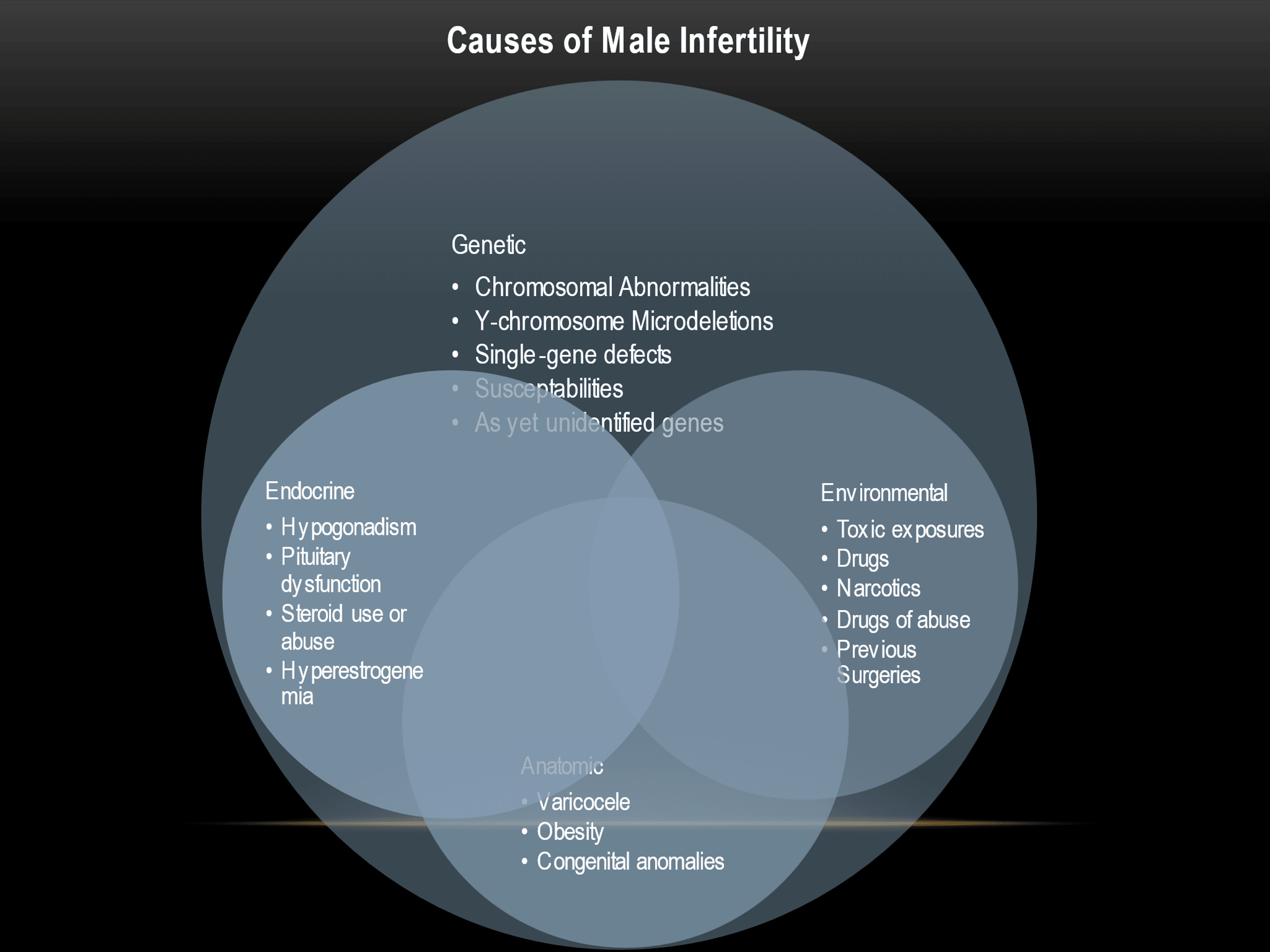The Categories of Male Infertility
When couples are having difficulty conceiving, often the medical workup looking into causes starts with the female. But approximately 20% of all couples that are trying to conceive have difficulty only because of male factors, and another 30% of the time both male and female factors play a role. So, 50% of couples have difficulty conceiving either in part or completely due to an issue with male subfertility!
What’s more alarming is that even though frequently the male side gets relegated to a secondary role when it comes to fertility, and therefore not tested or tested late in the process, issues with male fertility can be either corrected completely or improved on. This leads to the female getting put through extensive – or possible even unnecessary – testing and treatment.
Furthermore, issues with male fertility can be one of the few early chances to address health issues that can compound as one ages. It is a window of opportunity that, if taken, can lead to healthier lives later in life.
Find out more about the various causes of male infertility below.
Low Sperm Count
Find out what the definition of low sperm counts are, and the possible causes
No Sperm
This condition is referred to as azoospermia. Find out the possible causes of azoospermia, and the treatment options.
Normal Sperm Counts
Even though a man has a normal sperm count, there still may be an underlying issue that is leading to male factor infertility. Find out more.
Vasectomy Reversal
It is estimated that 5% of men who undergo vasectomy have regret about doing so and wish to reverse the process. Find out here what the options are.
Sperm Cryopreservation
There are times when an anticipated or unanticipated event takes place (e.g. surgery, vasectomy, medical therapy, fatal illness, etc) and a couple may want to preserve sperm for future. Find out more information about sperm cryopreservation here.
Male infertility encompasses a wide variety of potential issues. There are genetic, hormonal, environmental, and anatomic issues that can be contribute to suboptimal sperm counts.

The above is not an exhaustive list. However, there are many reasons for hope if there is an issue with a man’s sperm count. Many of the above conditions can be corrected. Furthermore, even if not corrected completely, in the majority of cases a man’s sperm count can be improved, which can lead to improved outcomes.
It is important to realize that fertility involves at least two individuals, and it is important to evaluate the female counterpart, just as it is important to evaluate the male. As such, for achieving fertility, it becomes less like other forms of medicine in the sense that we deal with probabilities rather than absolutes. For example, when an individual has diabetes or hypertension, there are established reference ranges that determine those conditions. Though those reference ranges can change over time, they still represent thresholds for identifying a person as diabetic or having hypertension.
With fertility, we talk much more about probabilities. There is a probability that a male will be able to have children, and a probability that a female will be able to have children. Our goal is to increase the probability on the male side to achieve a pregnancy, and by doing so increase the overall chances of success.
















